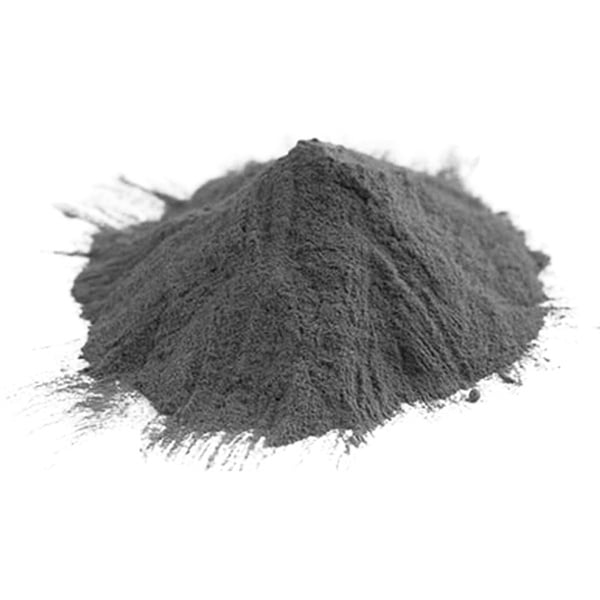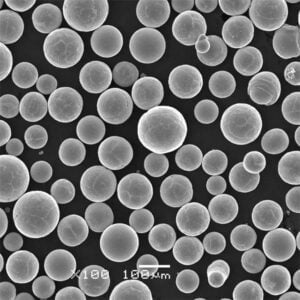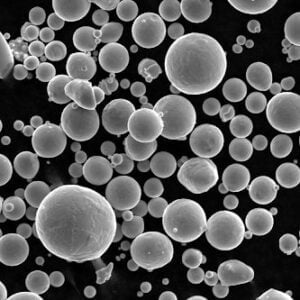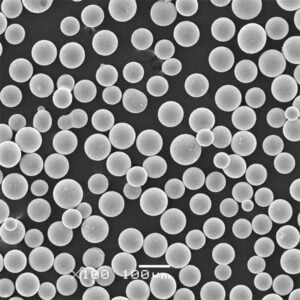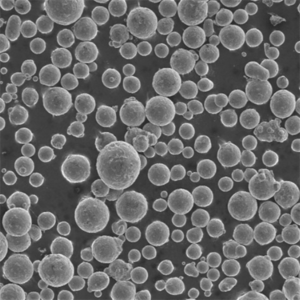Aluminium AlSi7Mg Powder
Aluminium AlSi7Mg powder is an aluminium alloy powder containing silicon and magnesium as its major alloying elements. This advanced engineering material offers exceptional strength, weldability and corrosion resistance along with excellent thermal properties.
AlSi7Mg powder has emerged as a versatile material for metal additive manufacturing processes like selective laser melting (SLM) and direct metal laser sintering (DMLS). Its unique composition imparts superior mechanical characteristics and makes it suitable for lightweight structural
Low MOQ
Provide low minimum order quantity to meet different needs.
OEM & ODM
Provide customized products and design services to meet unique customer needs.
Adequate Stock
Ensure fast order processing and provide reliable and efficient service.
Customer Satisfaction
Provide high quality products with customer satisfaction at the core.
share this product
Table of Contents
Aluminium AlSi7Mg powder is an aluminium alloy powder containing silicon and magnesium as its major alloying elements. This advanced engineering material offers exceptional strength, weldability and corrosion resistance along with excellent thermal properties.
AlSi7Mg powder has emerged as a versatile material for metal additive manufacturing processes like selective laser melting (SLM) and direct metal laser sintering (DMLS). Its unique composition imparts superior mechanical characteristics and makes it suitable for lightweight structural components across aviation, aerospace and automotive sectors.
Types of Aluminium AlSi7Mg Powder
AlSi7Mg alloy powder is available in different size distributions based on the metal AM process requirements:
| Type | Particle Size Range |
|---|---|
| Fine grade | 15 – 45 microns |
| Medium grade | 45 – 105 microns |
| Coarse grade | 105 – 150 microns |
The finer powder particles have higher surface area and improve powder bed density as well as resolution of printed parts. However, they tend to be more reactive and require inert gas handling.
Coarser particles on the other hand enhance powder flow and reduce safety risks. But they provide lower resolution and accuracy for complex 3D printed components.
Composition of AlSi7Mg
The nominal composition of aluminium AlSi7Mg alloy powder is:
| Element | Composition Range |
|---|---|
| Aluminium (Al) | Balance |
| Silicon (Si) | 6.5 – 7.5 wt% |
| Magnesium (Mg) | 0.45 – 0.55 wt% |
| Iron (Fe) | 0.55 wt% max |
| Copper (Cu) | 0.05 wt% max |
| Manganese (Mn) | 0.45 wt% max |
| Zinc (Zn) | 0.10 wt% max |
| Titanium (Ti) | 0.15 wt% max |
The high silicon and magnesium content in this aluminium powder alloy generates fine precipitates during solidification. This imparts significant strengthening through precipitation hardening mechanisms..
Key Properties of AlSi7Mg Powder
AlSi7Mg has a unique combination of material characteristics that makes it well-suited to additive manufacturing:
| Property | Value |
|---|---|
| Density | 2.68 g/cc |
| Melting Point | 575 – 585 deg C |
| Thermal Conductivity | 150 – 180 W/m-K |
| Thermal Expansion | 21 – 24 x 10-6 /K |
| Modulus of Elasticity | 72 – 77 GPa |
| Tensile Strength | 430 – 490 MPa |
| Elongation at Break | 8 – 10% |
| Hardness Brinell | 95 – 110 |
| High Temperature Stability | Excellent |
| Corrosion Resistance | Very Good |
Some of the key advantages of AlSi7Mg powder include:
- High strength-to-weight ratio
- Dimensional stability at elevated temperatures
- Extremely smooth surface finish of printed parts
- Excellent corrosion resistance especially in marine atmospheres
- Easy post-processing and good machinability
- Superior weldability compared to other aluminium grades
Applications of AlSi7Mg Powder
The versatile material properties of AlSi7Mg enables usage across various sectors:
| Industry | Applications |
|---|---|
| Aerospace | Structural brackets, engine components, complex lattices |
| Aviation | Airframe components, ducts, conduits |
| Automotive | Chassis parts, hubs, impellers |
| Marine | Deck hardware, antenna mounts, boat hulls |
| Industrial | Heat exchangers, process equipment |
| Consumer | Electronics housings, mods, accessories |
AlSi7Mg’s exceptional strength-to-weight ratio combined with excellent dimensional accuracy of metal 3D printing unlocks lighter weight design optimization across transport applications.
Specifications for AlSi7Mg Powder
AlSi7Mg powder for additive manufacturing processes must conform to strict quality benchmarks.
| Parameter | Requirements |
|---|---|
| Particle shape | Spherical morphology + satellites permitted |
| Particle size distribution | D10 > 10 microns; D90 < 100 microns |
| Apparent density | > 60% of solid density |
| Flow rate | > 15 s / 50 g |
| Moisture content | < 0.1 wt% |
| Oxygen content | < 0.5 wt% |
| Nitrogen content | < 0.5 wt% |
| Hydrogen content | < 0.2 wt% |
Manufacturers aim to maximize powder recyclability and minimize variation in these metrics through stringent quality control frameworks.
Global Suppliers of AlSi7Mg Powder
Some of the leading global suppliers of AlSi7Mg alloy powder include:
| Company | Brand Names | Particle Sizes Available | Price Range |
|---|---|---|---|
| Sandvik | Osprey + Ampal | 15-45 um | 45-105 um | $90 – $110 per kg |
| Carpenter | ALSi7Mg | 15-53 um | 53-150 um | $80 – $100 per kg |
| LPW Technology | LPW AlSi7Mg | 15-45 um | $100 – $140 per kg |
| TLS Technik | AlSi7Mg04 | 10-45 um | 45-106 um | $75 – $90 per kg |
| AMC Powders | AlSi7Mg SLM | 10-45 um | $70 – $100 per kg |
Pricing varies based on order volume, lot size, regional distributors and customization options.
How AlSi7Mg Compares to AlSi10Mg for Metal AM
AlSi10Mg is another popular aluminium alloy used in powder bed fusion processes:
| AlSi7Mg | AlSi10Mg | |
|---|---|---|
| Silicon content | 6.5 – 7.5 wt% | 9 – 11 wt% |
| Density | 2.68 g/cc | 2.67 g/cc |
| Tensile strength | 430 – 490 MPa | 400 – 460 MPa |
| Ductility | Higher | Lower |
| Weldability | Excellent | Moderate |
| Surface finish | Smoother | Rougher |
| Cost | Higher | Lower |
While AlSi10Mg offers better affordability and printability, AlSi7Mg provides superior mechanical performance, corrosion resistance and post-processing characteristics.
Advantages and Limitations of AlSi7Mg
Some of the major advantages of AlSi7Mg powder include:
Advantages:
- Excellent strength-to-weight ratio for lightweighting
- High hardness plus good ductility
- Outstanding corrosion resistance
- Excellent thermal stability at higher temperatures
- Smoother surface finish than AlSi10Mg
- Better weldability than other Al-alloys
Limitations:
- Higher cost compared to AlSi10Mg powder
- Lower maximum operating temperature than aluminum alloys with higher Si content
- Reactivity with atmospheric moisture and oxygen requires careful handling
- Lower thermal conductivity than pure aluminum and copper alloys
- More supports required during printing due to lower printability
Recent Research Advancements with AlSi7Mg
Ongoing research on AlSi7Mg powder focuses on:
- Grain refinement through novel alloy compositions and heat treatment to attain ultra-fine microstructures leading to substantial improvements in yield strength, tensile strength and fatigue life
- Surface enhancement via advanced finishing techniques like abrasive flow machining, laser polishing and electro-polishing to minimize porosity-driven vulnerabilities and enhance functional performance
- Joining technologies including friction stir welding and other solid-state processes to enable integration, repair and modification of additively manufactured AlSi7Mg components for extended service life
- qualification and certification through extensive materials testing and process characterization following industrial standards to evolve specification frameworks for reliable end-use across mission-critical systems
Many OEMs are collaborating directly with AlSi7Mg powder vendors to push custom formulations tailored for their specific applications. The focus areas span building predictive capabilities around microstructure evolution, thermal behavior, defect mitigation, anisotropy quantification and industrial-scale quality assurance.
These sustained efforts will expand the high-performance envelope for metal additive manufacturing using AlSi7Mg alloy and proliferate its adoption across multiple sectors.
FAQ
| Question | Answer |
|---|---|
| Is AlSi7Mg precipitation hardenable? | Yes, AlSi7Mg can be precipitation hardened through appropriate heat treatment to attain peak strength. |
| Why is AlSi7Mg preferred over AlSi10Mg in certain applications? | AlSi7Mg provides better mechanical properties like tensile strength and hardness along with superior corrosion resistance and weldability over AlSi10Mg. |
| What is the typical surface roughness achieved with AlSi7Mg AM parts? | AlSi7Mg printed parts demonstrate exceptional surface finish with average roughness (Ra) values ranging from 5 – 15 microns. |
| What are some alternatives to AlSi7Mg powder? | Alternate options include AlSi10Mg, AlSi12, Scalmalloy, aluminum 6061 alloy, titanium Ti64 amongst others. |
| What is the typical tolerance level for AlSi7Mg AM components? | Dimensional tolerances upto +/- 0.3% are routinely achieved for AlSi7Mg printed parts based on optimized parameters and geometric complexity. |
| What types of post-processing are commonly used on AlSi7Mg AM parts? | Typical post-processing includes – Support removal > Heat treatment > Surface enhancement – grinding/polishing > Quality inspection. |
Get Latest Price
About Met3DP
Product Category
HOT SALE
CONTACT US
Any questions? Send us message now! We’ll serve your request with a whole team after receiving your message.

Metal Powders for 3D Printing and Additive Manufacturing
COMPANY
PRODUCT
cONTACT INFO
- Qingdao City, Shandong, China
- [email protected]
- [email protected]
- +86 19116340731






